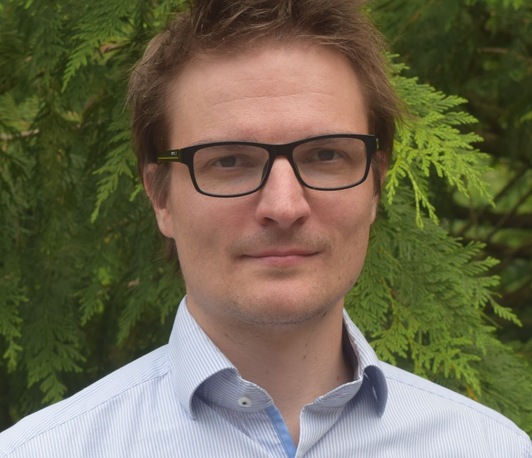State-dependent neural dynamics in health and disease
- Datum: 31.01.2025
- Uhrzeit: 11:00 - 12:30
- Vortragende(r): Dr. Dennis Nestvogel
- Ort: Max-Planck-Ring 8 + Zoom
- Raum: Room 203 + Zoom
- Gastgeber: Dr. Robert Ohlendorf
- Kontakt: madhushree.pethe@tuebingen.mpg.de

Abstract: To effectively interact with our environment, we rely heavily on our ability to process visual signals. How we process visual signals, in turn, is strongly shaped by our physiological and bodily state including the level of arousal, motor movements, and attention. For example, when we are tired and inattentive, our ability to discriminate between stimuli is poor and as a consequence, we may struggle to process stimuli that signal a potential threat, or a pleasant reward. Conversely, when we are vigilant and highly attentive, our ability to discriminate is enhanced and we react more efficiently to changes in our environment. By exerting a powerful influence over the way our brain processes visual information, physiological and bodily states determine our behavioral responses to sensory signals and thus significantly impact our daily lives. Our lab aims to dissect the brain mechanisms that link changes in physiological and bodily states to our ability to perform sensory-guided tasks with a particular focus on the role of the visual thalamus in this process. For this, we make use of advanced techniques such as in vivo intracellular and extracellular high-density recordings, mouse behavior, and optogenetics. Ultimately, we aim to uncover how disruptions in state-dependent processing contribute to the etiology of psychiatric disorders like ADHD and schizophrenia, to achieve better outcomes for individuals experiencing deficits in sensory-guided behavior.
Bio: Dennis Nestvogel is a Max Planck Research Group leader at the Max Planck Institute of Psychiatry. He received his bachelor’s degree in biology from the University of Bremen. For his graduate studies, he joined the laboratories of Nils Brose and JeongSeop Rhee at the Max Planck Institute for Experimental Medicine, where he studied the cell biological mechanisms of short-term plasticity and their relevance for bipolar disorder. Following his graduate studies, he worked as a postdoctoral research scholar in the group of David McCormick at the University of Oregon. During his postdoctoral studies, he investigated the synaptic and circuit mechanisms that underlie arousal- and movement-related neural dynamics in the visual pathway. The overarching goal of his current research is to understand how our ability to accurately interpret sensory input depends on our behavioral state, and how this process is disrupted in psychiatric disorders.
Lab's webpage: https://sites.google.com/view/neuraldyamics
Access to the meeting: Zoom Link